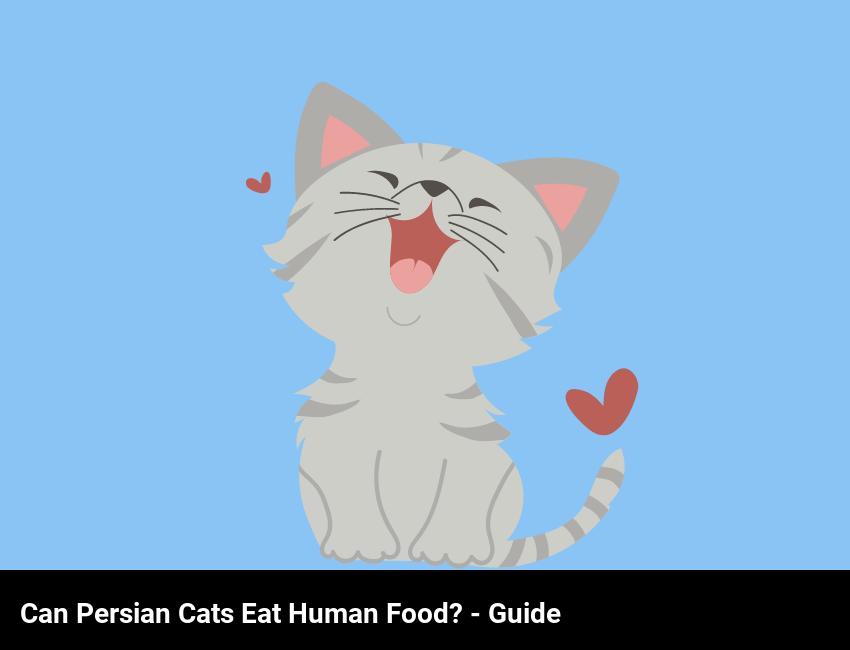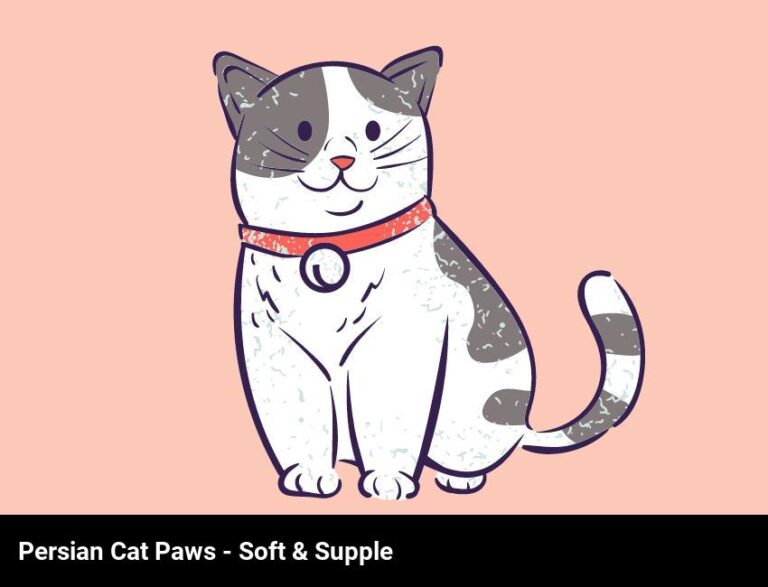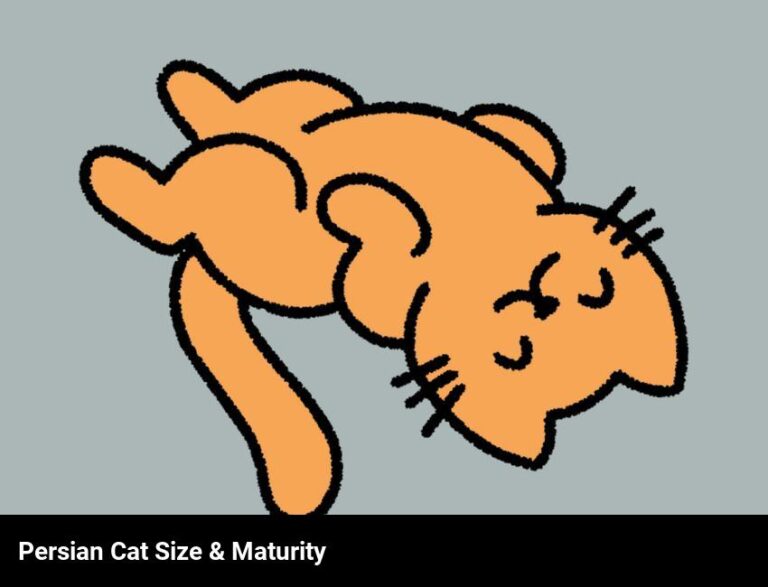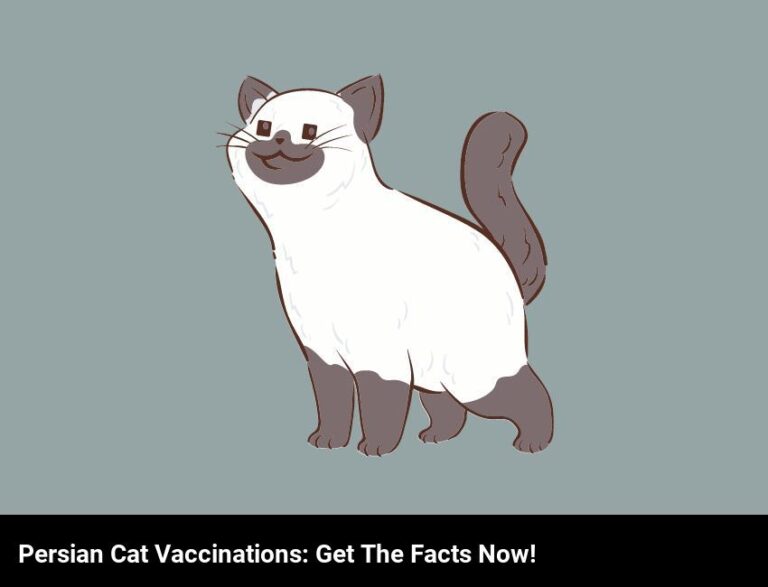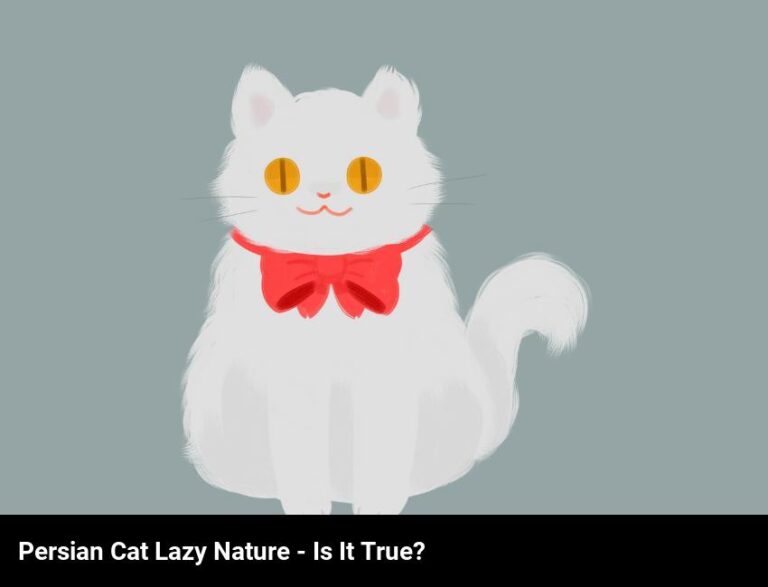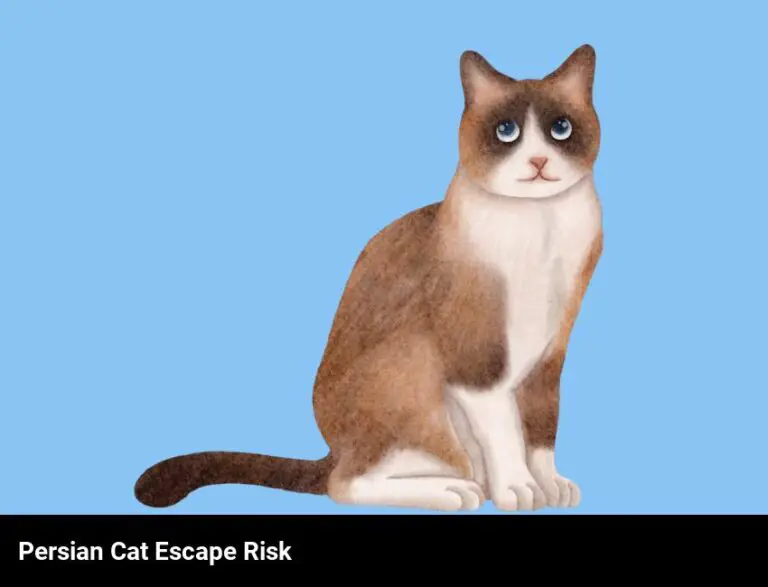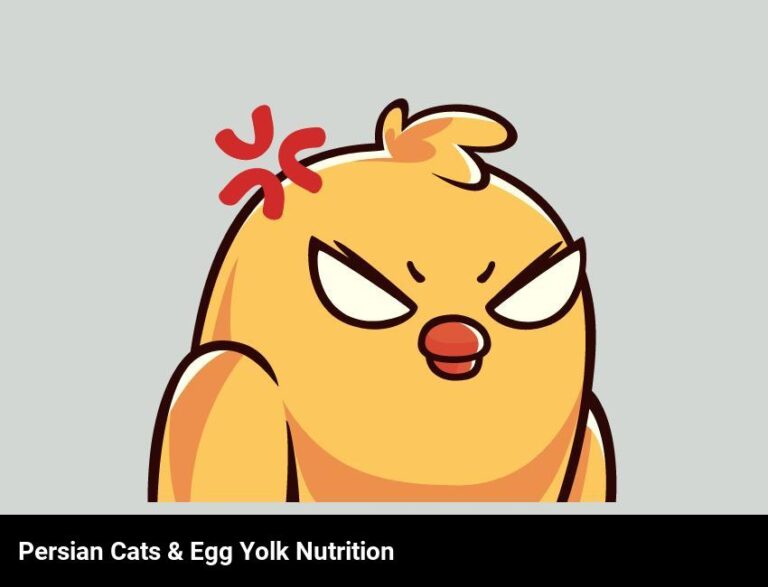Can Persian Cats Eat Human Food? A Guide
Yes, Persian cats can eat human food. However, such food should always be healthy and limited, as too much of it can lead to obesity and health problems.
Do you ever wonder what your Persian cat would think of your homemade meals? Do you wonder if it’s safe for your kitty to indulge in human food? If you’ve ever been curious about feeding your Persian cat human food, then this guide is for you!
I’ve been a proud pet parent of Persian cats for many years, and I know just how tricky it can be to navigate the world of human food versus cat food. Persian cats have their own unique dietary needs, but it’s possible to supplement their diet with a few human foods here and there.
In this guide, I’ll share with you my personal experience with feeding Persian cats human food. I’ll explain the difference between human food and cat food, what types of human food are safe to give your Persian cat, the benefits of including human food in your pet’s diet, what types of human food to avoid, how much human food you should give your Persian cat, and some final tips and tricks.
By the end of this guide, you’ll have all the information you need to confidently and responsibly feed your Persian cat human food.
What is the difference between human food and cat food?
You’re probably wondering what the difference is between human food and cat food. Well, the answer is simple – cats need special nutrients that aren’t found in human food.
In general, cat food has higher levels of protein, essential fatty acids, and other essential vitamins and minerals. This is because cats have very specific nutritional needs that they can’t get from human food.
For example, cats need taurine, an amino acid that helps maintain their heart and eye health, but it is not found in human food. Similarly, cats need much higher levels of protein than humans do, and this can’t be obtained through human food either.
So, while it may be tempting to give your Persian cat some of your leftovers, it’s best to stick to cat food in order to provide them with all the nutrients they need.
What are the benefits of feeding persian cats human food?
Yes, Persian cats can eat human food! And there are some great benefits to it.
- Variety: By offering your Persian cat various human foods, you can introduce new flavors, textures, and smells. This will help keep your cat interested in its food and engaged in mealtime.
- Nutrition: Human food can provide your Persian cat with additional nutrition. For example, fatty fish like salmon and tuna are high in essential Omega-3 fatty acids, which can help keep your cat’s coat glossy, its skin healthy, and its digestive system running smoothly.
- Bonding: Feeding your Persian cat human food can also be a great bonding experience for the both of you. By hand-feeding your cat, you can deepen your connection and give your furry friend a special treat at the same time.
- Treats: Feeding human food to your Persian cat can be a great way to reward or show your cat some love. Cats typically love the taste of cooked chicken, fish, and eggs, so you can use these as occasional treats that your cat will love.
Remember, when introducing human food to your Persian cat, it’s important to do it gradually and always in moderation. Speak to your vet to make sure that the food you’re offering is safe and appropriate for your cat’s age and health status.
Are there any other tips for feeding persian cats human food?
Yes, there are! Feeding your Persian cat human food can be a great way to give them a special treat, but there are some things to consider when doing so. Here are some tips to keep in mind when feeding your Persian cat human food:
- Monitor the amount of human food you give your cat. Just like with regular cat food, too much human food can lead to weight gain and other health issues.
- Make sure the human food you give your cat is appropriate for their age and health. For example, avoid giving a kitten food that is high in fat or salt.
- Keep it simple. Don’t give your cat complicated dishes with lots of spices. Stick with plain, natural ingredients for the best results.
- Don’t feed your cat anything with onions, garlic, chives, and other foods that can be toxic to cats.
- Try to avoid giving your cat any raw meat or fish.
- Avoid giving your cat any sugary or processed foods. These can upset their stomach and lead to other health issues.
- Make sure to always provide plenty of fresh water for your cat to stay hydrated.
By following these tips, you’ll be able to safely and properly feed your Persian cat human food.
What types of human food are safe for persian cats to eat?
When it comes to what types of human food Persian cats can eat, the answer is: quite a few! In fact, there are lots of delicious options that can be served up as treats or even as part of a balanced diet.
First of all, there are the obvious ones like cooked chicken, tuna, and salmon. These can be served up as a special treat or added to their regular meal. Just make sure to remove any bones and skin, as these can be dangerous for cats.
In addition, you can also offer some cooked vegetables such as carrots or sweet potatoes. These can be mashed or chopped and added to their regular food or served as a snack.
Fruits like apples, bananas, and strawberries can also be a delicious treat for Persian cats. Just make sure to remove any seeds or pits, as these can be dangerous for cats if ingested.
Cheese is another option that can be offered as a snack or treat. Just make sure to offer in small amounts, as too much can cause digestive issues.
Finally, a small amount of plain yogurt can be a great addition to their diet. This can help promote digestion and provide a good source of calcium.
So, as you can see, there are lots of tasty options when it comes to human food that your Persian cat can enjoy. Just make sure to feed them in moderation and always check for any potential hazards before feeding.
What types of human food should be avoided when feeding persian cats?
When feeding Persian cats, it’s important to know which types of human food should be avoided. Generally, fatty, sugary, and salty foods are not good for cats, so these should be avoided. Grapes and raisins should also be avoided, as these can be toxic for cats. Additionally, onions, garlic, and chives can be toxic to cats, so these should never be given.
It’s also important to remember that cats are obligate carnivores, so they require a diet that is high in protein and low in carbohydrates. Therefore, any human food that is high in carbs should be avoided, such as bread, pasta, and potatoes.
In general, it’s best to stick to cat food to ensure your Persian cat is getting the right nutrients. If you do decide to feed your cat human food, be sure to check with your vet first to make sure it is safe.
How much human food should you give persian cats?
Yes, Persian cats can eat human food. However, it’s important to remember that they should only have very small amounts – no more than 10% of their daily caloric intake should come from human food.
When it comes to what type of food you should give your Persian cat, it’s best to stick to healthy, well-balanced diets. Lean proteins such as cooked chicken or turkey, boiled eggs, and canned tuna are all good options. Avoid any foods that are high in fat or sugar, as these can be detrimental to your cat’s health.
You should also avoid giving your Persian cat any uncooked meats, as this can cause digestive issues. Also, make sure to avoid any foods that contain onion or garlic, as these can be toxic to cats.
When it comes to human food snacks, the occasional treat is fine, but again, it should only make up a small portion of your cat’s diet. Limit treats to one or two small pieces of cooked chicken or turkey per day. You can also give your cat small amounts of cooked vegetables, such as steamed broccoli or carrots.
It’s important to remember that cats are obligate carnivores, so their diets should be mostly composed of meat proteins. Feeding your Persian cat human food should only make up a small portion of their diet; the majority should still be high-quality cat food.
Overall, Persian cats can eat human food, but it should only be given in very small amounts. When providing your cat with human food, make sure to stick to lean proteins and cooked vegetables and avoid any foods that are high in fat or sugar. Above all, try to maintain a well-balanced diet for your cat and limit human food to occasional treats.
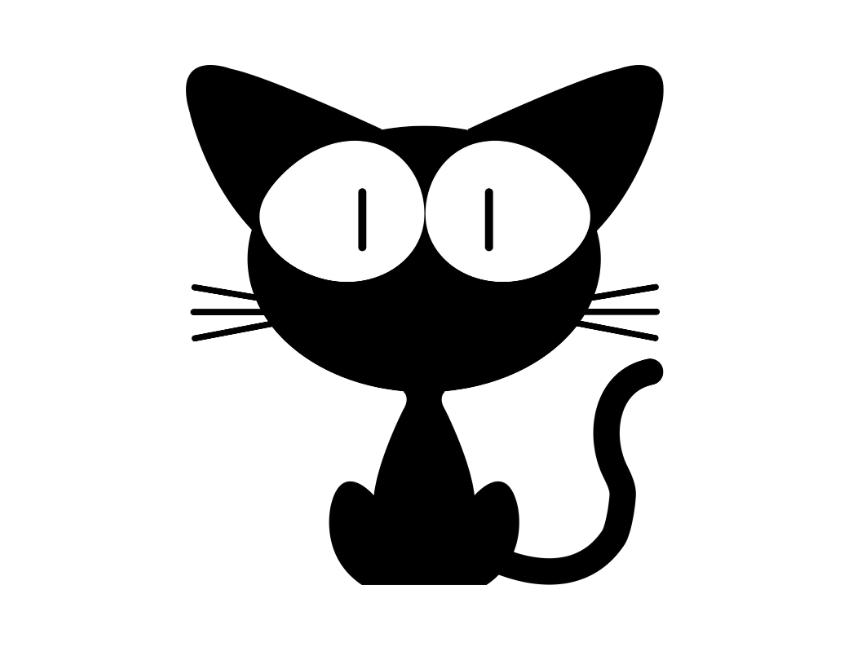
Frequently Asked Questions
What are some unusual human foods safe for persian cats to eat?
Persian cats can eat some human foods safely, although it’s important to feed them a balanced cat-specific diet as their main source of nutrition. Unusual, safe human foods for Persian cats include cooked eggs, plain yogurt, cooked chicken, oatmeal, apples, bananas, and small amounts of cottage cheese. Make sure to avoid sweeteners, onions, garlic, and raw meats.
What are some signs a persian cat may be allergic to certain human foods?
Some signs that your Persian cat may be allergic to certain human foods include itching, sneezing, coughing, and skin rashes. Other signs could include vomiting, diarrhea, and loss of appetite. If you suspect your cat has an allergy, it’s best to consult your veterinarian for further advice.
How can i make sure i’m feeding the right proportions of human food to my persian cat?
When feeding your Persian cat human food, make sure to follow the recommended ratios. For example, feed your cat no more than 10-20% of their daily calories from human food. Additionally, ensure that human foods are appropriate for cats and limit treats to no more than 10% of their daily caloric intake. Provide a balanced diet, with plenty of moisture and animal-based proteins.
What are some creative ways to serve human foods to my persian cat?
You can serve human food to your Persian cat in a variety of creative ways! Try mashing up fruits and vegetables, like bananas and carrots, for a healthy snack. Another option is to dice up pieces of meat and fish and serve them as a special treat. If you’re looking for something different, try adding small amounts of cheese or yogurt to your cat’s meal. Be sure to consult your vet before introducing any human food items to your cat’s diet.

